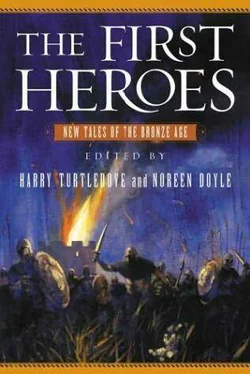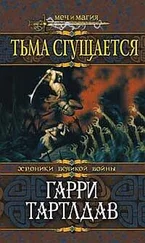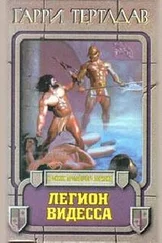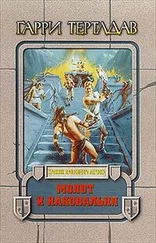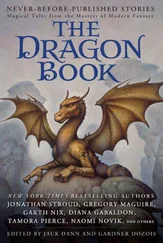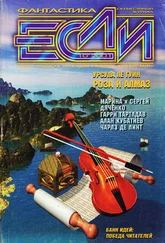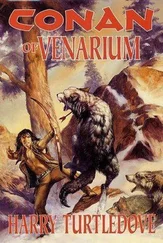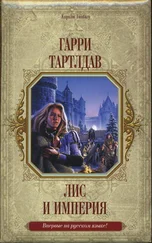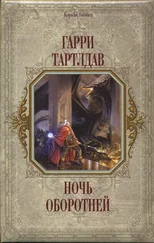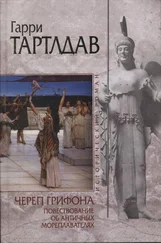Гарри Тертлдав - The First Heroes
Здесь есть возможность читать онлайн «Гарри Тертлдав - The First Heroes» весь текст электронной книги совершенно бесплатно (целиком полную версию без сокращений). В некоторых случаях можно слушать аудио, скачать через торрент в формате fb2 и присутствует краткое содержание. Жанр: Фантастика и фэнтези, на английском языке. Описание произведения, (предисловие) а так же отзывы посетителей доступны на портале библиотеки ЛибКат.
- Название:The First Heroes
- Автор:
- Жанр:
- Год:неизвестен
- ISBN:нет данных
- Рейтинг книги:3 / 5. Голосов: 1
-
Избранное:Добавить в избранное
- Отзывы:
-
Ваша оценка:
- 60
- 1
- 2
- 3
- 4
- 5
The First Heroes: краткое содержание, описание и аннотация
Предлагаем к чтению аннотацию, описание, краткое содержание или предисловие (зависит от того, что написал сам автор книги «The First Heroes»). Если вы не нашли необходимую информацию о книге — напишите в комментариях, мы постараемся отыскать её.
The First Heroes — читать онлайн бесплатно полную книгу (весь текст) целиком
Ниже представлен текст книги, разбитый по страницам. Система сохранения места последней прочитанной страницы, позволяет с удобством читать онлайн бесплатно книгу «The First Heroes», без необходимости каждый раз заново искать на чём Вы остановились. Поставьте закладку, и сможете в любой момент перейти на страницу, на которой закончили чтение.
Интервал:
Закладка:
"Well done, Kusi, my son." He raised his arms and gazed at the cheering thousands. Then he clapped once, and they fell silent.
Kusi straightened and looked Wiraqocha in the face. Still he did not so much as glance at Orqo. "The Chankas are driven from Qosqo, lord," he said formally. "I bring prisoners and spoils that you may walk upon them and claim your victory." Wiraqocha looked down at Kusi. His eyes narrowed, then his face relaxed. He smiled, and nodded to Orqo. Orqo felt an impulse to flee. His head pounded with pain.
"I am old," said Wiraqocha. "My remaining days as your lord are few. Let Orqo, he who will soon be Inka, claim the victory." He signaled to Orqo's bearers, who lowered the litter so Orqo could step out.
The motion made Orqo dizzy, and he held tightly to his chair.
But Kusi stepped forward and grabbed Wiraqocha's ankle. The nearest soldiers gasped. "No! Not him!" Kusi hissed.
Wiraqocha broke Kusi's grasp with a quick twist of his foot. His voice was low and menacing. "He will soon be your lord. Give him this honor."
"Him? The deserter? The coward who ran from the Chankas like a frightened qowi? He is no brother of mine, and he will never be my lord!" Kusi finally looked at Orqo, and the anger in his eyes made Orqo flinch. But he did his best to meet Kusi's gaze. Kusi already thought him a coward; Orqo would not prove him right by refusing to look him in the eye.
Wiraqocha squared his shoulders and gazed straight ahead. "It is decided. Orqo claims the victory." He nodded to Orqo.
Orqo climbed from his litter and took a hesitant step toward the nearest Chanka. But Kusi leaped in front of him, and they stood chest to chest, not a finger's breadth between them. Orqo still stood the taller, by half a head, but Kusi's shoulders were broad and muscled.
"No, Father," said Kusi. "Only warriors claim victories."
Orqo looked sideways at Wiraqocha. Kusi was adamant, surely he could see that.
The Inka crossed his arms. "You are young, Kusi. We will discuss this again. You and your generals will join us for a victory feast when the sun sets?" Kusi looked from one man to the other, then stepped back. "Yes, Father." He turned to Orqo. Barely moving his lips, he whispered, "You deserted Qosqo. You left my mother to the Chankas."
"Not only I," Orqo protested.
Kusi leaned toward Orqo's ear. "Father is honorable, but old. He would not have abandoned Qosqo without persuasion. I know who the real cowards are. Both of them." Then Kusi looked at Qori Chullpa and spat on the ground.
Orqo shook with the injustice of his accusation. But Kusi was gone, swallowed up by his admiring troops. Orqo could only return to his litter and follow Wiraqocha. It took all his concentration to sit upright. Once they were well inside the fortress, his father irritably ordered the bearers to set him down. Orqo did the same. Wiraqocha whispered some quick orders to one of his soldiers, then took Orqo's arm and led him toward their private courtyard. Qori Chullpa touched him reassuringly before going to see that the feast would be ready.
"So Kusi won," Orqo said. His mouth was dry as sand.
"Yes," Wiraqocha admitted. He cleared his throat and put a hand on Orqo's shoulder. "I have decided. When we return to Qosqo, I will give you this." He touched the fringe on his forehead. "I have been Inka long enough. It is time for you to begin your reign."
Orqo swallowed. "The people will not accept me as Inka, not while Kusi lives. They loved him before. Now he is the hero of Qosqo." "Don't worry." Wiraqocha removed his helmet and rubbed his head. "I have already sent men to take care of him."
"You mean—"
"An ambush."
Orqo shuddered. He needed more aqha. "And the people who love him?"
"The people are changeable. They will learn to love you, too, when they have no choice."
"And the gods?"
Wiraqocha did not reply.
The crag called Chupalluska was one of the few landmarks on the river that Orqo knew—and that knowledge he owed to Kusi. After the failed ambush, Kusi had returned to Qosqo, claimed the title of ruling Inka, and declared that Orqo was forbidden entry into the city until he recognized Kusi as ruler. Of course Wiraqocha would permit Orqo to do no such thing, and Orqo had traveled widely to find warriors willing to fight for him. He had passed Chupalluska more than once. Now he saw it loom in the distance, and his heart froze within him. He swam for shore to rest before his decision.
But the river was impatient. Now, it whispered. Go now. Or there will be no choice left.
"What do you mean? Will I die or not?" Orqo responded impatiently.
The river ran silent.
He could almost bear it, he thought, if only he could tell Kusi—if only he could watch his brother's face as he learned that he owed it all, his empire, his riches, his victories, to his despised brother Orqo. To die unknown, unacknowledged, was unendurable. But the thought that the Inka people would disappear from the face of the earth was more horrible than anything he could imagine.
Mama Runtu had been right. He held Kusi's fate in his hands—but much more than Kusi's.
One last time he turned to the river. "I want Kusi to know," he said. Mayu-Mama laughed. Very well. Orqo could not believe it. "He will know? How?"
Trust.
"Why should I trust you?"
Have you a choice?
Orqo paused.
Go.
He plunged into the water, kicking and paddling just enough to keep from drowning. He could think only of the proud, hate-filled face of his brother, spitting on the ground as he refused to let Orqo claim the spoils.
As long as Kusi knows, he thought. I can hear this as long as Kusi knows.
He will know, Mayu-Mama whispered, almost inaudibly. He will know.
The crag neared. Orqo felt weak, and his wounds burned. He swam toward the shore and death.
And so it happened that Orqo, son of Wiraqocha, met his fate at the hands of his brother's soldiers at the crag of Chupalluska on the Willkamayu. Kusi had Orqo's body cut to pieces. Wiraqocha's grief, however, knew no limits, and some of those faithful to him carefully gathered up Orqo's limbs and head and put them in a sacred place.
Kusi, as Pachakuteq Inka Yupanki, built an empire that grew in size and in wealth until an army of white men with metal armor and their diseases struck it down. Pachakuteq, however, died an old man before the strangers arrived, and his mummy was lovingly guarded by his descendants. Wrapped in fine cloth, wearing new eyes of beaten gold, Pachakuteq continued to watch over his empire.
But time and space do not exist for the dead as for the living, so when the jaw of Orqo spoke gloatingly in its secret cave, the mummy of Pachakuteq in its shrine heard with maize-husk ears.
I made you, the jaw would say. You could have been nothing. You owe it all to me.
Then the jaw would shiver and laugh as the mummy of Pachakuteq, Earth-Shaker, flashed its golden eyes and ground its teeth.
The earliest record of the Myrmidons, soldiers renowned for their industry, thrift, and endurance, comes from Homer's Iliad, in which they fight under the command of Achilles. Centuries later Ovid, in his Metamorphoses, reached back to the days of Achilles' grandfather AZacus to explain their origin and their name, "Ants." Entomology—and etymology—being undeveloped disciplines at the time, Ovid overlooked one crucial detail of Formicidae biology. Larry Hammer, in his poetic epic, has not.
The Myrmidons
Larry Hammer
The plague came out of nowhere. No one knew
What god or goddess sent it, and the signs,
When not ambiguous, were all too few:
The oak leaves still, the livers whole and fine,
From left and right the birds flew in straight lines,
Читать дальшеИнтервал:
Закладка:
Похожие книги на «The First Heroes»
Представляем Вашему вниманию похожие книги на «The First Heroes» списком для выбора. Мы отобрали схожую по названию и смыслу литературу в надежде предоставить читателям больше вариантов отыскать новые, интересные, ещё непрочитанные произведения.
Обсуждение, отзывы о книге «The First Heroes» и просто собственные мнения читателей. Оставьте ваши комментарии, напишите, что Вы думаете о произведении, его смысле или главных героях. Укажите что конкретно понравилось, а что нет, и почему Вы так считаете.
